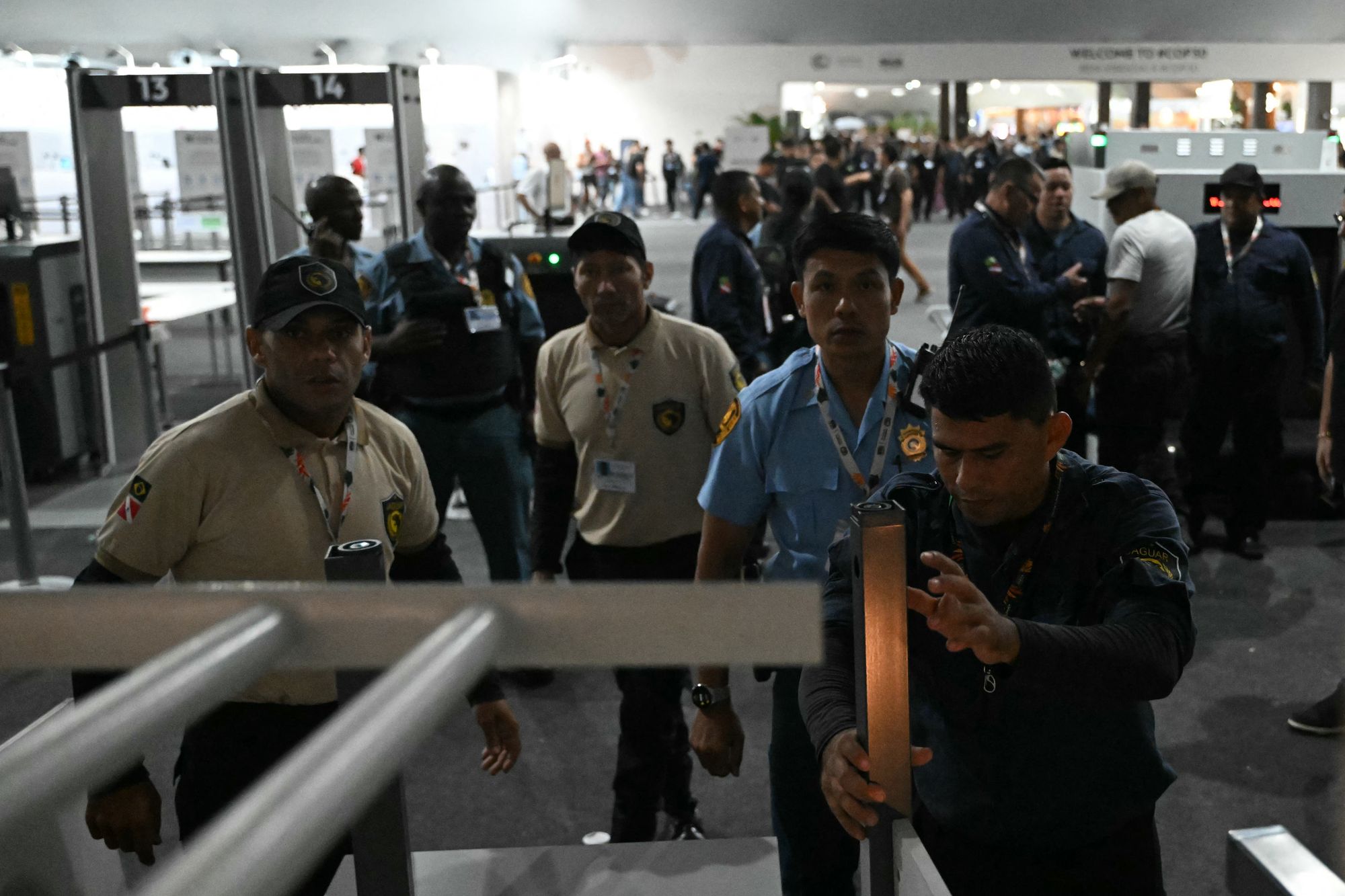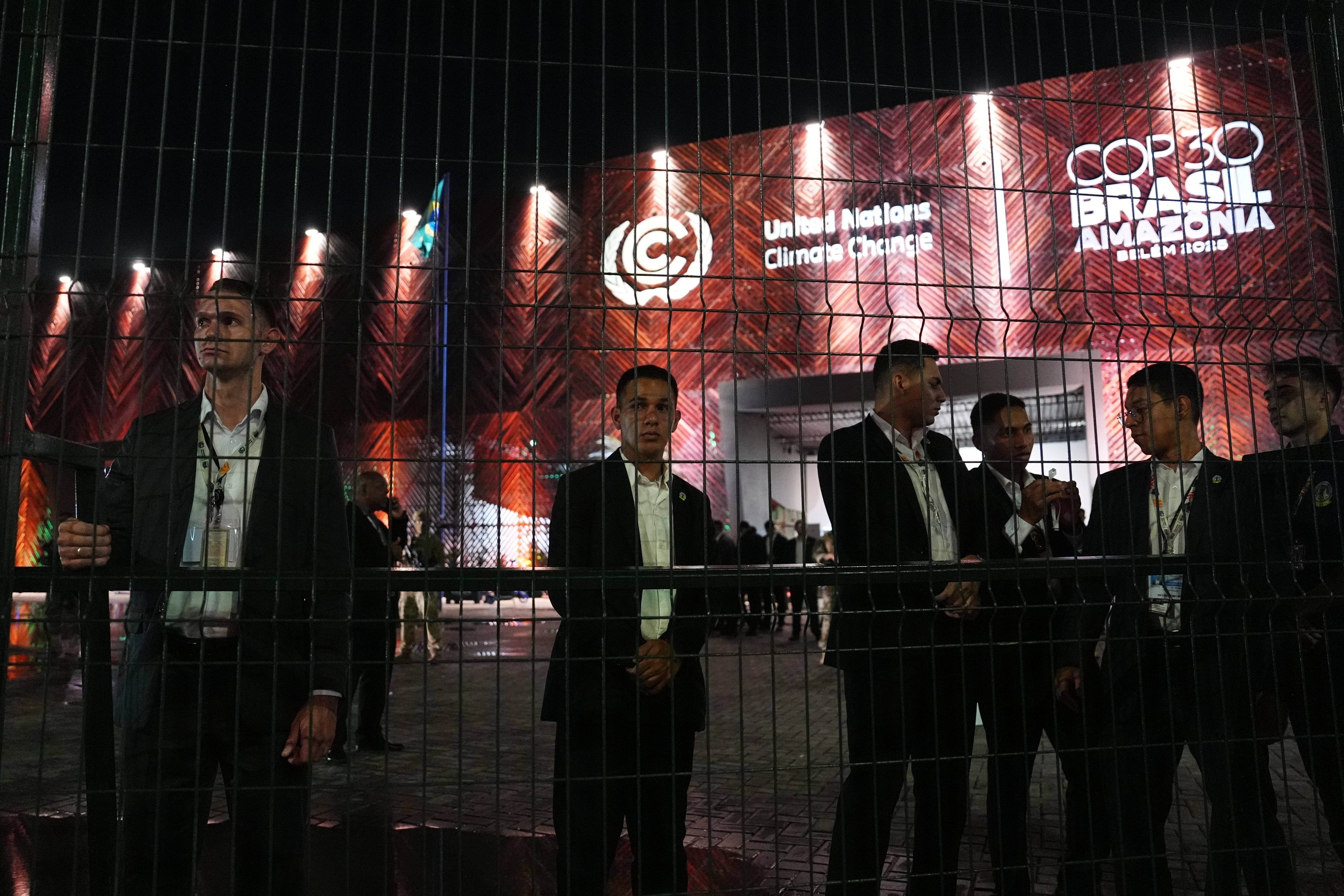Indigenous protesters clashed with security guards after forcing their way into the Cop30 climate summit in Brazil on Tuesday.
Two security workers suffered minor injuries in the skirmish as the protesters barged in and demanded access to the UN compound where thousands of delegates were gathered to discuss climate change in the Amazonian city of Belem.
The protesters carried flags emblazoned with slogans calling for land rights and signs proclaiming “our land is not for sale”.
“We can’t eat money,” Gilmar, an Indigenous leader from the Tupinamba community near the lower reaches of the Tapajos river in Brazil, said in an interview with Reuters. He said that Indigenous groups were frustrated about ongoing developments in the Amazonian forest. “We want our lands free from agribusiness, oil exploration, illegal miners and illegal loggers.”
Dozens of Indigenous leaders had arrived by boat to take their place at the talks and demand a stake in how their forests were managed.
“Earlier this evening, a group of protesters breached security barriers at the main entrance to the Cop[30], causing minor injuries to two security staff, and minor damage to the venue,” UN Climate Change said in a statement.
“Brazilian and UN security personnel took protective actions to secure the venue, following all established security protocols. Brazilian and UN authorities are investigating the incident. The venue is fully secured, and Cop negotiations continue."
One witness told Reuters that they saw a security guard clutching his stomach as he was rushed away on a wheelchair. A guard with a cut above his eye told the agency that he was hit on the head by a heavy drumstick that had been thrown from the crowd. Several batons were confiscated by security.
Agustín Ocana, a mobilisation coordinator with the Global Youth Coalition, said he saw two groups of people, some wearing yellow shirts and others in the garb of Indigenous communities, walking towards the venue. At first, they were mostly dancing and chanting and he decided to follow because he had some friends in the Indigenous group.
Mr Ocana said he didn't see which group first broke through security, but said the situation escalated when security guards reacted by closing the doors forcefully and calling more guards.

Mr Ocana added that some of the people entering were chanting: “They cannot decide for us without us,” referring to tensions over the participation of Indigenous people in the conference.
“They were not doing this because they were bad people. They’re desperate trying to protect their land, the river,” he said.
In the wake of the clash, delegates were asked to move inside the building and not leave, but were later allowed to exit.
On Tuesday, Raoni Metuktire, also known as Chief Raoni, told Reuters that Indigenous communities were critical of ongoing industry and development projects inside the Amazon forest.
Brazilian president Luiz Inácio Lula da Silva had insisted that Indigenous communities play a key role in Cop30 negotiations.

This year’s meeting, taking place from 10 to 21 November brings together representatives from nearly 200 countries to discuss the effects of climate change on vulnerable regions.
Leaders of the US, China and India – the planet’s three biggest polluters – are not attending.
British prime minister Keir Starmer, who is attending in person, said the “consensus is gone” on the climate crisis as governments across the world were scaling back their commitments to cut emissions.
“But that makes our duty even greater,” Sir Keir told the conference. “Because inaction will only deepen the problems of rising bills, energy insecurity and global instability.”







